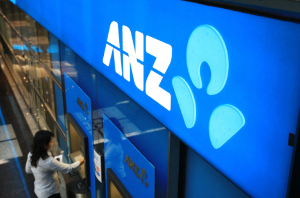In a new ANZ Insights Report, ANZ senior strategist David Croy says mortgage holders need to think “how exposed they are” and plan ahead for possibly higher borrowing costs.
Data for April shows about 76% of mortgage debt is either floating or up for rollover within the next 12 months.
Less than a quarter of mortgage debt is fixed for more than one year, and that’s low by historic standards.
It means that when the Reserve Bank does start raising interest rates, it’ll bite sooner for most people. This traction will likely lessen how much they have to lift by, but it’ll come at a cost to many people, says Croy.
Given the growth in household debt, the economy’s sensitivity to interest rates is a lot higher. The household debt to income ratio has risen significantly over recent years.
In simple terms, more debt means more sensitivity to a change in interest rates.
The ANZ is forecasting headline inflation to peak at 3% in the next quarter of this year.
Croy says this largely reflects persistent (not permanent) factors, including Covid-induced shipping disruptions, which are feeding through into higher costs and prices, as well as a tighter labour market.
“Exactly how transitory or persistent (or even permanent) the lift in inflation proves to be remains to be seen, and there are plenty of mixed views out there,” says Croy.
“It matters crucially for borrowers given the Reserve Bank’s other objective is to get inflation sustainably to 2% and things are going well – almost too well – on this front,” he says.
“It’s looking like inflation is at more risk of overshooting than undershooting at this point. While we are yet to see actual CPI above 2%, the survey data suggests this is just around the corner.”
Risks skewed
The Reserve Bank is predicting the OCR will need to rise by about 1.5% from mid-2022.
Its projections have the OCR holding steady for the next year or so, and then rising from 0.25% to 1.78% by mid-2024, but these projections are extremely conditional.
Croy says there are risks in both directions. Inflation may slump as the economy softens, and shipping disruptions ease. The housing market might cool more than expected, dampening demand.
“On the other side, inflation pressures could prove more persistent than expected if they feed into inflation expectations and wage growth.”
The ANZ sees the risks skewed towards higher interest rates. It doesn’t, for example, expect to see interest rates fall again, unless another economic catastrophe comes along.
However, Croy says this cycle won’t be like the boom-bust cycles of old, where interest rates fell a long way, which stoked a recovery the Reserve Bank leaned against with higher rates, with the goal of engineering a soft landing at 2% inflation (and now full-employment).
“That didn’t always go smoothly – take the 2004-2008 cycle as an example, the Reserve Bank had to take the OCR from 5% to 8.25% before the economy slowed.
“When it did, the GFC saw it collapse, which by the way had nothing to do with the Reserve Bank,” he says.
This time around, the starting point for the OCR is lower (0.25%). On the face of it, that suggests the OCR could go a lot higher before it gets back to more “normal” levels – it was at 1% pre-Covid.
Households also have less time-certainty with regard to how long they have locked in fixed mortgage rates for.
For borrowers, the “problem” is that on the one hand, you can still borrow very cheaply if you select a short term, but if interest rates rise, the cheap rate won’t be around for long.
Croy says the alternative is to borrow for longer – but of course that costs more – in some cases a lot more. There is no obvious win-win.



 Search
Search
